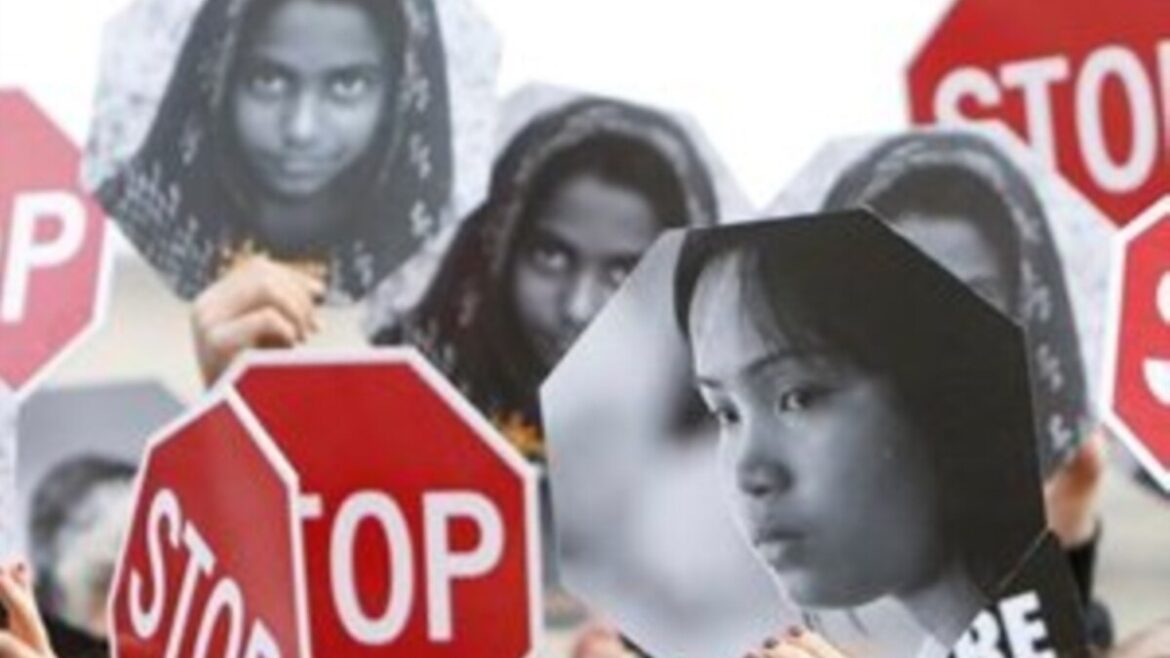The world is a fragile tapestry, woven with the threads of individual stories and shared experiences. Among these threads, the narrative of gender-based violence remains an unsettling stain, darkening the vibrant colors of the human experience. As Christians, we are called to recognize this affliction, particularly during the Sixteen Days of Activism Against Gender-Based Violence. This annual campaign, extending from November 25th, the International Day for the Elimination of Violence Against Women, to December 10th, Human Rights Day, serves as a solemn reminder of our shared responsibility to foster a safer, more equitable world.
To understand the gravity of this campaign, one must first confront the stark reality of gender-based violence. It is not simply a matter of statistics, though the numbers are haunting: one in three women worldwide has experienced physical or sexual violence. Rather, it is a reflection of the deep-seated cultural, religious, and social constructs that perpetuate inequality and discrimination. These constructs often find their way into the fabric of societies, leading to a normalization of violence that many Christians must actively combat to uphold the values of love and justice taught in Scripture.
In the context of Christian theology, this issue is profoundly significant. At the heart of our faith lies the fundamental principle of love—agape love, which transcends self-interest and extends to the vulnerable and marginalized. The parable of the Good Samaritan exemplifies this ethos, illustrating that true neighborliness transcends societal boundaries. Each act of kindness and solidarity during the Sixteen Days can be seen as a deliberate choice to embody this love, aiming to restore dignity and humanity to those who have been subjected to violence.
The metaphoric landscape we inhabit during these sixteen days is one of valleys and mountaintops, where every voice raised against injustice echoes through the ages. This activism calls Christians to traverse the valleys of despair alongside survivors, offering not mere charity but genuine partnership in healing. It challenges us to ascend the mountaintops of advocacy, where we can cast shadows of awareness across communities, illuminating the often hidden realities faced by those afflicted by gender-based violence.
Furthermore, this campaign provides an essential opportunity for the church to reflect on its role within society. Historically, institutions of faith have sometimes perpetuated harmful narratives about gender roles, inadvertently contributing to an environment where violence can thrive. As we engage with this cause, it becomes paramount that the church seeks to dismantle such narratives. By promoting a theology that emphasizes mutual respect, equality, and the inherent worth of every individual—regardless of gender—we can cultivate a more profound and transformative understanding of relationships.
During the Sixteen Days of Activism, various initiatives emerge that encapsulate the essence of this mission. From educational programs to community outreach, each action taken is a stitch in the larger quilt of societal change. For instance, the creation of workshops that address issues of toxic masculinity and educate men about respectful relationships is crucial. These must not merely be viewed as supplementary efforts but as integral to discipleship. In this way, Christian men can learn how to embody Christ-like virtues, standing as allies against oppression rather than passive beneficiaries of a broken system.
Simultaneously, the church community must amplify the voices of women who have experienced violence. Their stories are not mere statistics—they are the living testament to resilience and fortitude. By sharing these narratives during worship services or through community forums, the church can cultivate an atmosphere of empathy and awareness. This collective storytelling can serve as a catalyst for change, prompting congregations to engage in active advocacy, whether through supporting local shelters or participating in policy dialogues that seek to end violence against women.
In this collective journey, we must also recognize the connection between violence and injustice. Engaging with the broader social justice movement is imperative, as gender-based violence is often intertwined with issues such as poverty, racism, and oppression. Our activism must not only address violence against women but also challenge the systems that allow such violence to flourish. By fostering a holistic approach that addresses root causes, Christians can contribute to a more comprehensive response that transcends mere reaction and leads to proactive, meaningful change.
Ultimately, our engagement during the Sixteen Days of Activism Against Gender-Based Violence is an embodiment of our faith in action. It may at times feel like a daunting task, akin to tilting at windmills against a seemingly insurmountable foe. However, as Christians, we are called to believe in the transformative power of love and justice. Every act of charity, every word of support, and every prayer for healing becomes a drop in the ocean of change we aspire to see.
As we observe this important period, let us commit not only to a temporary display of concern but to a sustained effort that echoes beyond these sixteen days. It is through this commitment that we fulfill our role as bearers of light in a world often overshadowed by darkness. By standing firm against gender-based violence, we can contribute to an environment where every individual reflects the image of God, deserving of dignity, respect, and love. In so doing, we revive the very essence of the Gospel, extending grace and compassion to those who have suffered, and advocating tirelessly for justice in a world that desperately needs it.



